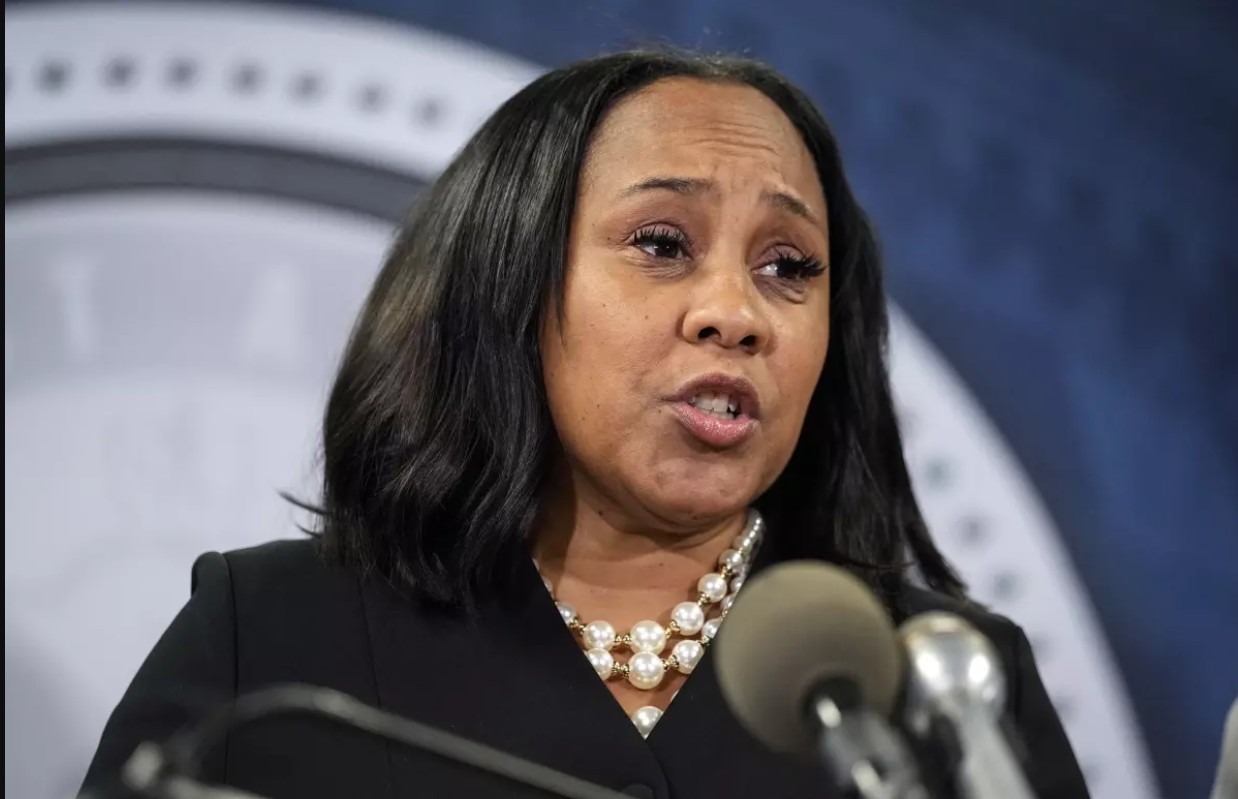Why Is There No Universal Healthcare In The US
 |
| Why Is There No Universal Healthcare In The US? Photo KnowInsiders |
| Contents |
The United States does not have universal health insurance coverage. While a lot of medical care is paid for by the federal government, many people still do not have health coverage.
Does the lack of universal health coverage have serious consequences, and can it be defended if so? What is the other side of the story? What does the United States have to gain by not providing universal health care?
What is universal healthcare?
According to World Health Organization, universal health coverage means that all people have access to the health services they need, when and where they need them, without financial hardship. It includes the full range of essential health services, from health promotion to prevention, treatment, rehabilitation, and palliative care.
Currently, at least half of the people in the world do not receive the health services they need. About 100 million people are pushed into extreme poverty each year because of out-of-pocket spending on health. This must change.
To make health for all a reality, we need: individuals and communities who have access to high quality health services so that they take care of their own health and the health of their families; skilled health workers providing quality, people-centred care; and policy-makers committed to investing in universal health coverage.
| Universal health coverage should be based on strong, people-centred primary health care. Good health systems are rooted in the communities they serve. They focus not only on preventing and treating disease and illness, but also on helping to improve well-being and quality of life. |
Why doesn’t the US have universal healthcare?
Americans don’t vote for it
One key reason is the unique political culture in America. As a nation that began on the back of immigrants with an entrepreneurial spirit and without a feudal system to ingrain a rigid social structure, Americans are more likely to be individualistic.
In other words, Americans, and conservatives in particular, have a strong belief in classical liberalism and the idea that the government should play a limited role in society. Given that universal coverage inherently clashes with this belief in individualism and limited government, it is perhaps not surprising that it has never been enacted in America even as it has been enacted elsewhere.
Public opinion certainly supports this idea. Survey research conducted by the International Social Survey Program has found that a lower percentage of Americans believe health care for the sick is a government responsibility than individuals in other advanced countries like Canada, the U.K., Germany or Sweden.
Interest groups don’t want it
Even as American political culture helps to explain the health care debate in America, culture is far from the only reason America lacks universal coverage. Another factor that has limited debate about national health insurance is the role of interest groups in influencing the political process. The legislative battle over the content of the ACA, for example, generated US$1.2 billion in lobbying in 2009 alone.
The insurance industry was a key player in this process, spending over $100 million to help shape the ACA and keep private insurers, as opposed to the government, as the key cog in American health care.
Recent reports suggest that lobbyists are already preparing to fight a potential “public option” under the ACA. Should any attempt at comprehensive national health insurance ever be made, lobbyists would certainly mobilize to prevent its implementation.
Entitlement programs are hard in general to enact
A third reason America lacks universal health coverage and the 2016 candidates have avoided the topic altogether is that America’s political institutions make it difficult for massive entitlement programs to be enacted. As policy experts have pointed out in studies of the U.S. health system, the country doesn’t “have a comprehensive national health insurance system because American political institutions are structurally biased against this kind of comprehensive reform.”
The political system is prone to inertia and any attempt at comprehensive reform must pass through the obstacle course of congressional committees, budget estimates, conference committees, amendments and a potential veto while opponents of reform publicly bash the bill.
Ultimately, the United States remains one of the only advanced industrialized nations without a comprehensive national health insurance system and with little prospect for one developing under the next president because of the many ways America is exceptional.
What Are the Consequences of Not Having Universal Health Care?
Many people end up bankrupt after a trip to the hospital in the United States. Without health insurance coverage, Americans have to pay the total medical care cost of whatever medical treatment they receive, which could be a fortune.
It’s not unusual for patients to be financially devastated by their medical bills in America. This is very different from other developed countries, where the government covers most or all other medical expenses.
How Much Do Americans Spend On Healthcare?
Health care spending in the United States grew to $4.3 trillion in 2021, and spending associated with public health activities like vaccinations and disease prevention programs is projected to have dropped 5.2% in 2021 to $212.1 billion.
The largest increase in spending came from hospital-related services, which accounted for more than 31%—or $1.3 trillion—of health care spending in 2021. In addition, pharmaceutical spending increased 4.7% in 2021, up from 3% in 2020.
In total, the slower growth in national health expenditures in 2021, coupled with growth in gross domestic product (GDP) that rebounded to 9.6%, resulted in an expected 0.9-percentage-point decline in the projected health share of the GDP to 18.8%.
Why does healthcare cost so much in the US?
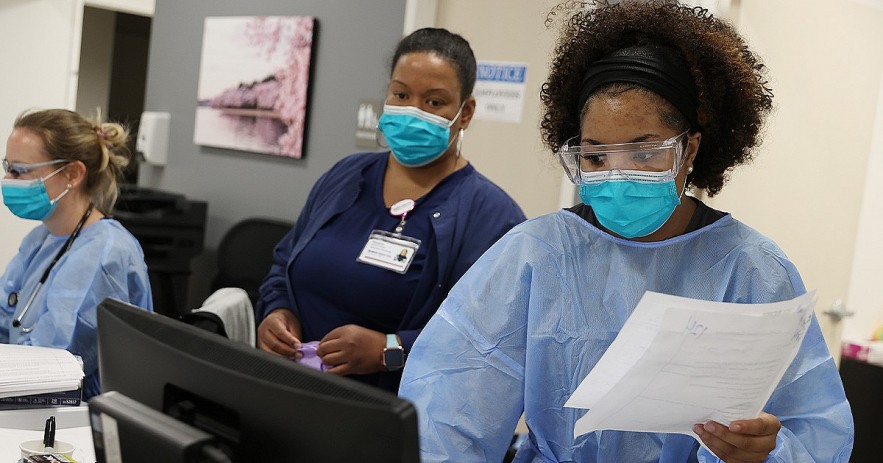 |
| Photo Peterson Foundation |
The U.S. as a nation spends more on health care than any other developed country but has worse health outcomes. How is this possible?
An Aging Population
Individuals age 65 and over are projected to account for 17 percent of the U.S. population in 2022. The U.S. Census Bureau projects that figure will exceed 20 percent by 2030. Since people age 65 and over, on average, spend more on healthcare than any other age group, growth in the number of older Americans is expected to increase total healthcare costs over time.
The newer the tech, the more expensive
Medical advances can improve our health and extend our life, but they can also lead to an increase in spending and the overutilization of expensive technology.
According to a study by the Journal of the American Medical Association8 (JAMA), Americans tend to associate more advanced technology and newer procedures with better care, even if there’s little to no evidence to prove that they’re more effective.
This assumption leads both patients and doctors to demand the newest, and often most expensive, treatments and technology available.
The Increasing Cost of Healthcare Services
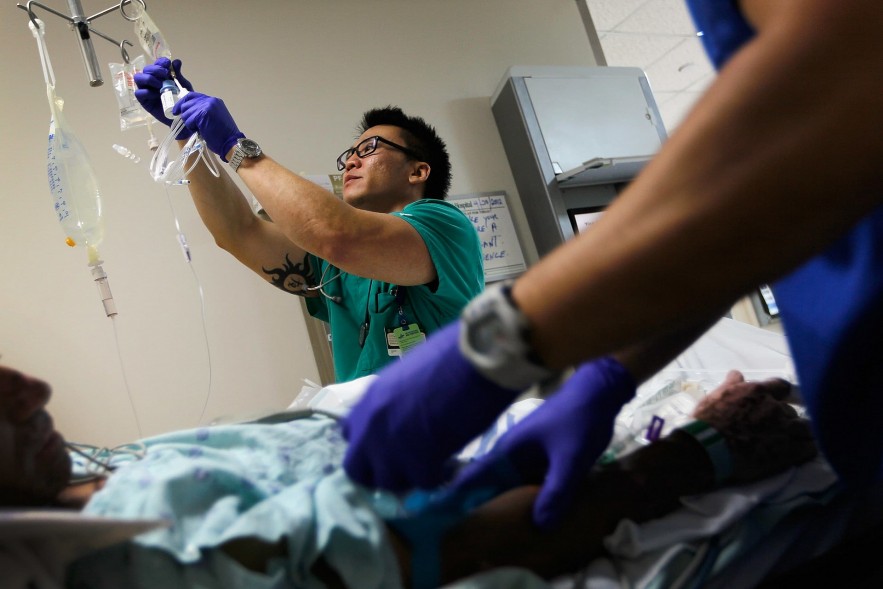 |
| Photo Getty |
Prices are another significant driver of healthcare spending in the United States; the cost of healthcare services typically grow faster than the cost of other goods and services in the economy. In the past 20 years, the Consumer Price Index (CPI) — the average change in prices paid by urban consumers for various goods and services — has grown at an average of 2.1 percent per year while the CPI for medical care has grown at an average rate of 3.5 percent per year.
Growing Prices of Drugs
Americans spend 3-4 times more on medicinal drugs than their counterparts in other advanced nations. High drug costs are one of the primary reasons behind the high cost of healthcare in the US compared to the rest of the world. These governments control the drug prices, usually depending on the clinical significance of the medication.
Unless tangible regulations are put in place to control drug prices, the situation will worsen. Today, on average, the US government spends almost twice on healthcare per person compared to other progressive nations.
Currently, non-governmental insurers can bargain for a discount on drug prices with producers repeatedly via the services of pharmacy benefit managers. However, Medicare, which bears a significant chunk of the national drug costs, is prohibited from negotiating prices with manufacturers.
Doctors (and Nurses) Are Paid More
The average U.S. family doctor earns $214,370 yearly as of 2020, and specialists make $316,000—way above the average in other industrialized countries. American nurses make considerably more than elsewhere, too. The average salary for a U.S. nurse is about $74,250, compared to $58,041 in Switzerland and $60,253 in the Netherlands.
Inflation’s impact on the economy
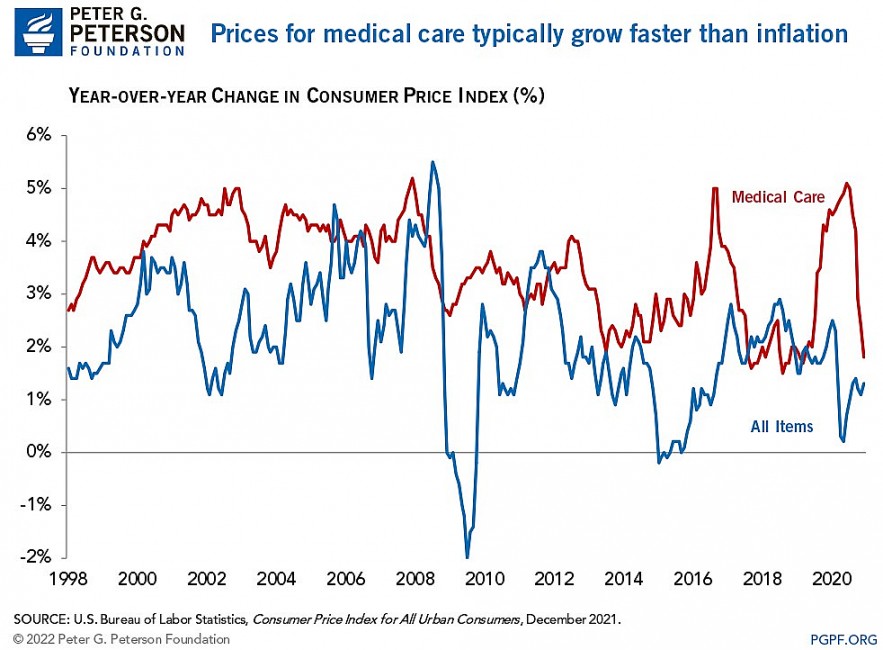 |
| Photo Peterson Foundation |
Healthcare inflation is slowly increasing as patients are returning to doctor’s offices after avoiding them throughout the pandemic, causing many people to cancel physician services. Inflation affects the costs of operations, supplies, administration, and facilities. Additionally, healthcare facilities have taken a hit due to continued staff shortages and lower annual incomes for healthcare workers.
According to KFF16, in April 2022, overall inflation prices grew by 8.3% since last year, while healthcare prices increased by only 3.2%. But even though healthcare inflation hasn’t outpaced general inflation yet,, some medical services and items saw an increase in costs.
| Annual costs for hospital services—including inpatient (3.7%), outpatient (3.3%), and nursing care facilities (3.6%)—rose faster than overall medical care prices (3.2%). However, prescription drugs and physician services had lower price increases (1.7% and 1.2%, respectively). Many individuals are worried that healthcare inflation will eventually overtake any increase in their annual income, so they’re debating whether to cancel or postpone their care—much like they did during the pandemic—until they can get their financial situation under control. But due to the delayed effect of inflation in healthcare, patients should get their healthcare needs fulfilled sooner rather than later, especially if they have chronic conditions. |
 Top 20 Best Healthcare Administration Jobs For Recent Graduates With No Experience Top 20 Best Healthcare Administration Jobs For Recent Graduates With No Experience This guide will shed light on the top 20 incredible entry-level healthcare administration jobs for recent graduates without experience! |
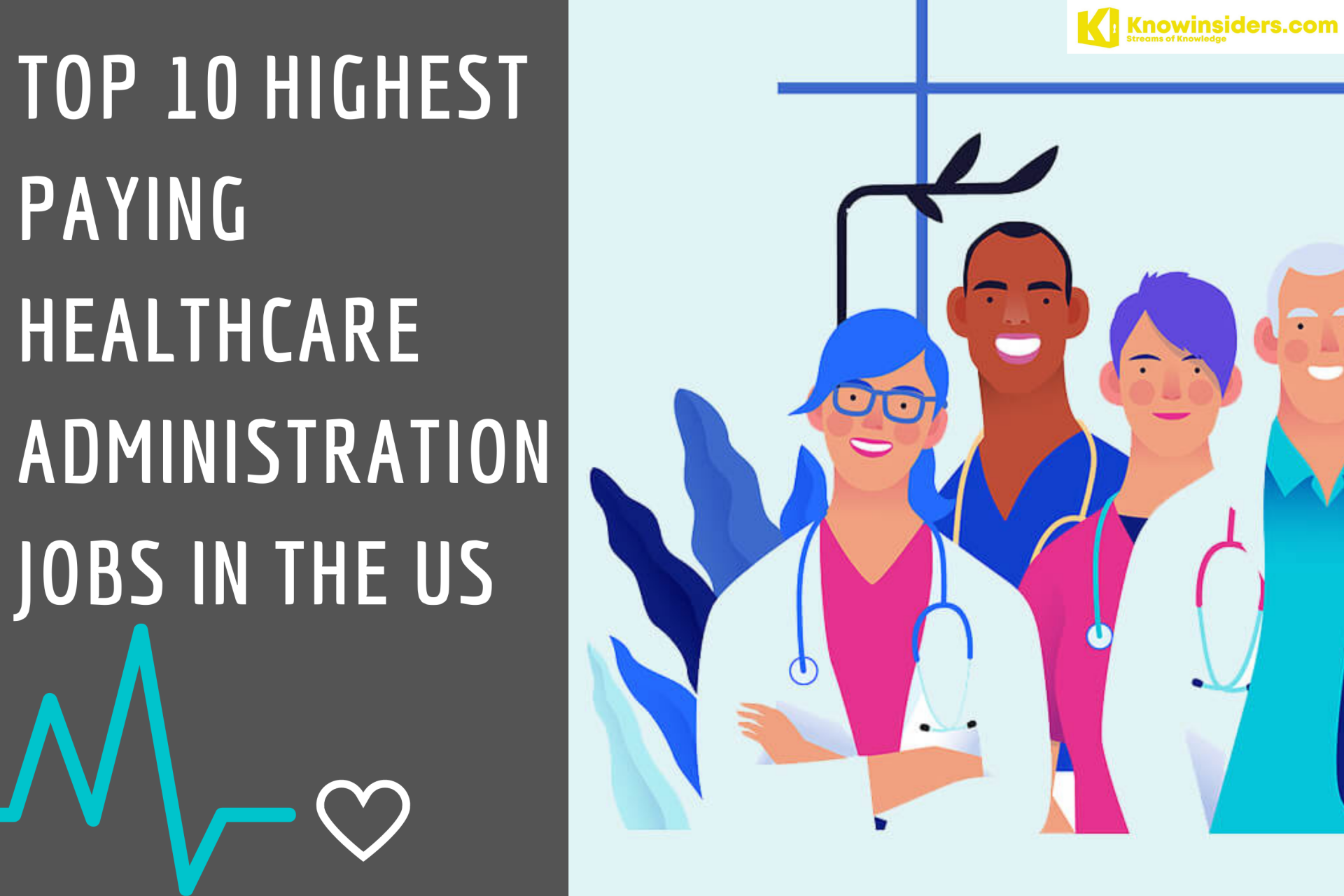 Top 10 Highest Paying Healthcare Administration Jobs In The US Top 10 Highest Paying Healthcare Administration Jobs In The US Not sure which 10 highest paying healthcare administration jobs in the US? Take a look at the top 10 highest-paying health care management jobs below |
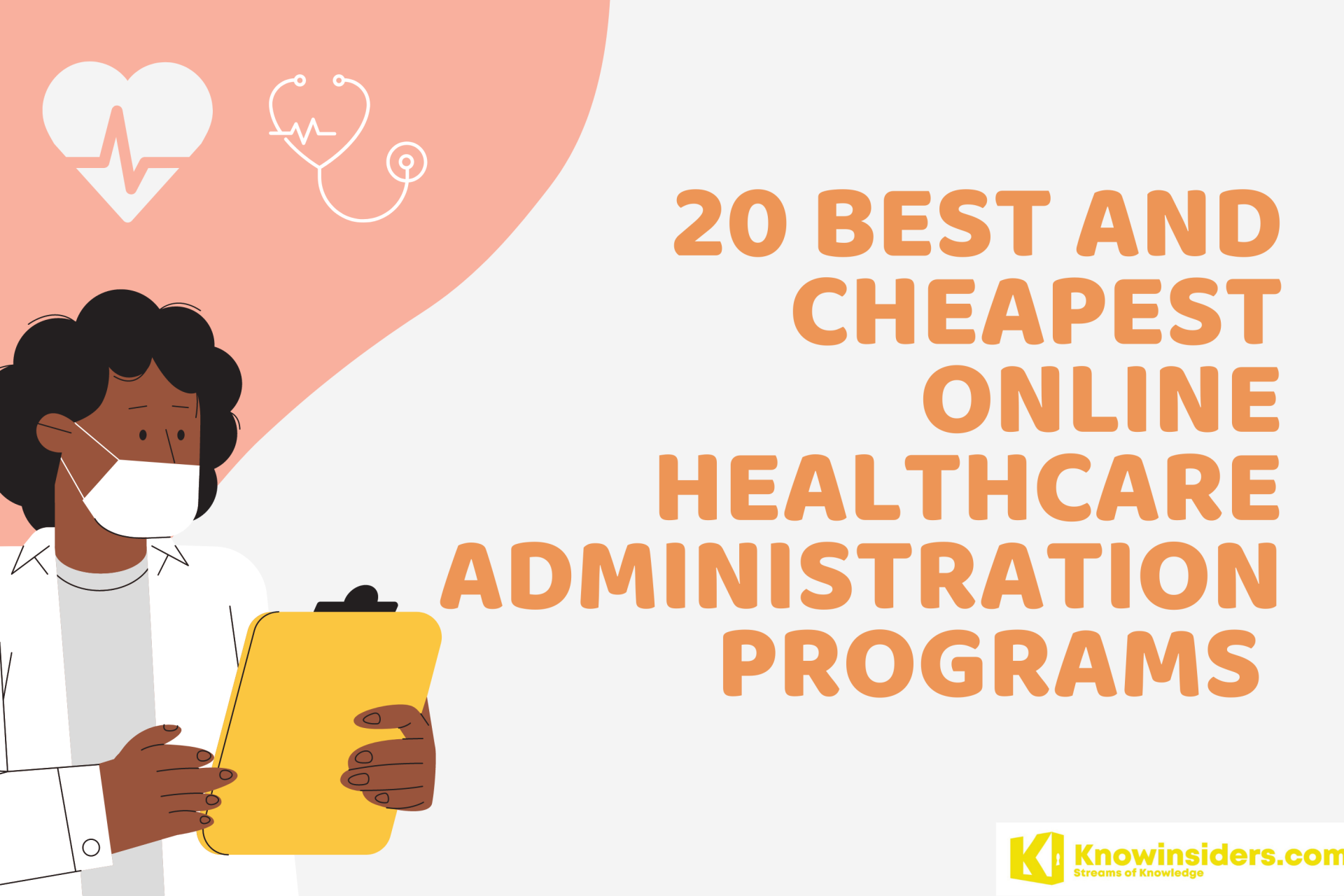 20 Best & Cheapest Online Healthcare Administration Programs 20 Best & Cheapest Online Healthcare Administration Programs This post guides the top 20 best and cheapest programs that offer the most affordable online bachelor in healthcare administration degrees. |




